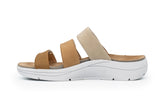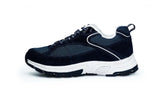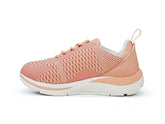When it comes to foot health, selecting the right footwear is essential—especially for men who require additional support due to medical conditions or the pursuit of all-day comfort. Orthopedic shoes are designed with specialized features to provide stability, cushioning, and proper alignment, making them a valuable choice for men with foot issues such as plantar fasciitis, arthritis, or diabetes. Unlike regular footwear, these shoes focus on reducing pain, preventing further complications, and promoting healthier foot movement.
Why Men Need Orthopedic Shoes
Orthopedic footwear addresses both medical needs and lifestyle comfort. Men dealing with foot problems like flat feet, bunions, or hammertoes often find significant relief in orthopedic shoes. By maintaining proper foot alignment, they can reduce strain and discomfort. Even for those without chronic conditions, the enhanced comfort of orthopedic footwear makes them ideal for long hours on the move—whether for work, travel, or leisure.
Types of Orthopedic Shoes for Men

-
Orthopedic Formal Shoes – A blend of style and functionality, perfect for professional settings. They often feature cushioned insoles, structured arch support, and durable materials to keep feet comfortable during long workdays. You can explore our men’s orthopedic formal collection here.
-
Medical Shoes for Men – Designed for severe foot conditions or post-surgery recovery, these shoes offer extra depth for orthotics, adjustable straps for a custom fit, and slip-resistant soles for safety.
-
Orthopedic Sandals for Men – Great for warm weather or casual outings, these sandals typically have contoured footbeds, adjustable straps, and shock-absorbing soles. They provide both breathability and support for daily activities.
Key Features to Look for in Orthopedic Shoes
Orthopedic footwear is effective when it has the right combination of design elements. Look for shoes that provide:

-
Arch Support – Maintains foot alignment and reduces strain, especially for those with fallen arches or plantar fasciitis.
-
Cushioning – Absorbs impact and relieves pressure, ideal for arthritis or heel pain.
-
Wide Toe Box – Prevents compression, reducing the risk of bunions and hammertoes.
-
Adjustable Straps or Laces – Allows flexibility for swelling and ensures a secure, comfortable fit.
Tips for Choosing the Best Orthopedic Shoes
Before purchasing, consulting a podiatrist can help identify the features you need for your specific foot health. Whenever possible, try the shoes on and walk in them to assess comfort and fit, paying attention to heel and arch support. Consider your daily activities when choosing between formal shoes, casual sandals, or medical footwear. For a wide range of options tailored for comfort and foot health, check our men’s orthopedic shoe collection or women’s orthopedic footwear range.
Caring for Your Orthopedic Shoes
To maximize durability and maintain their supportive benefits, keep your orthopedic shoes clean, replace worn insoles, and rotate between pairs to allow them to breathe. These small steps can help preserve both comfort and structure over time.
Walking the Extra Mile
Investing in the right orthopedic shoes is not just about style or comfort—it’s about protecting your mobility and overall health. With the right pair, you can move confidently through your day without compromising on support. And when the fit is right, every step feels lighter, healthier, and more effortless.








